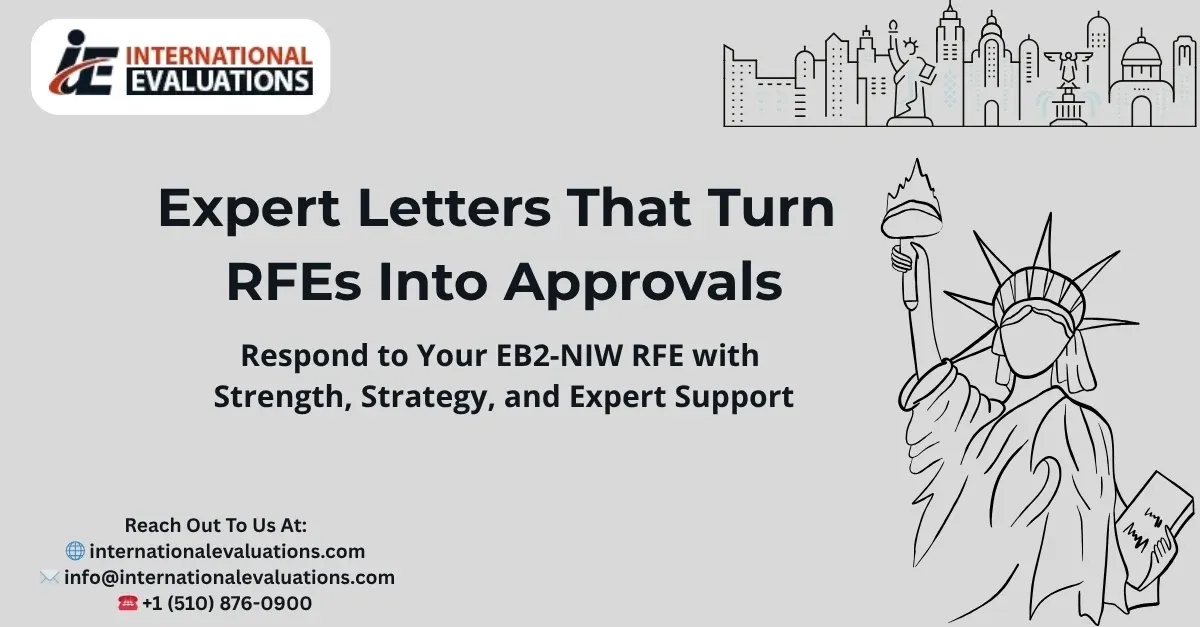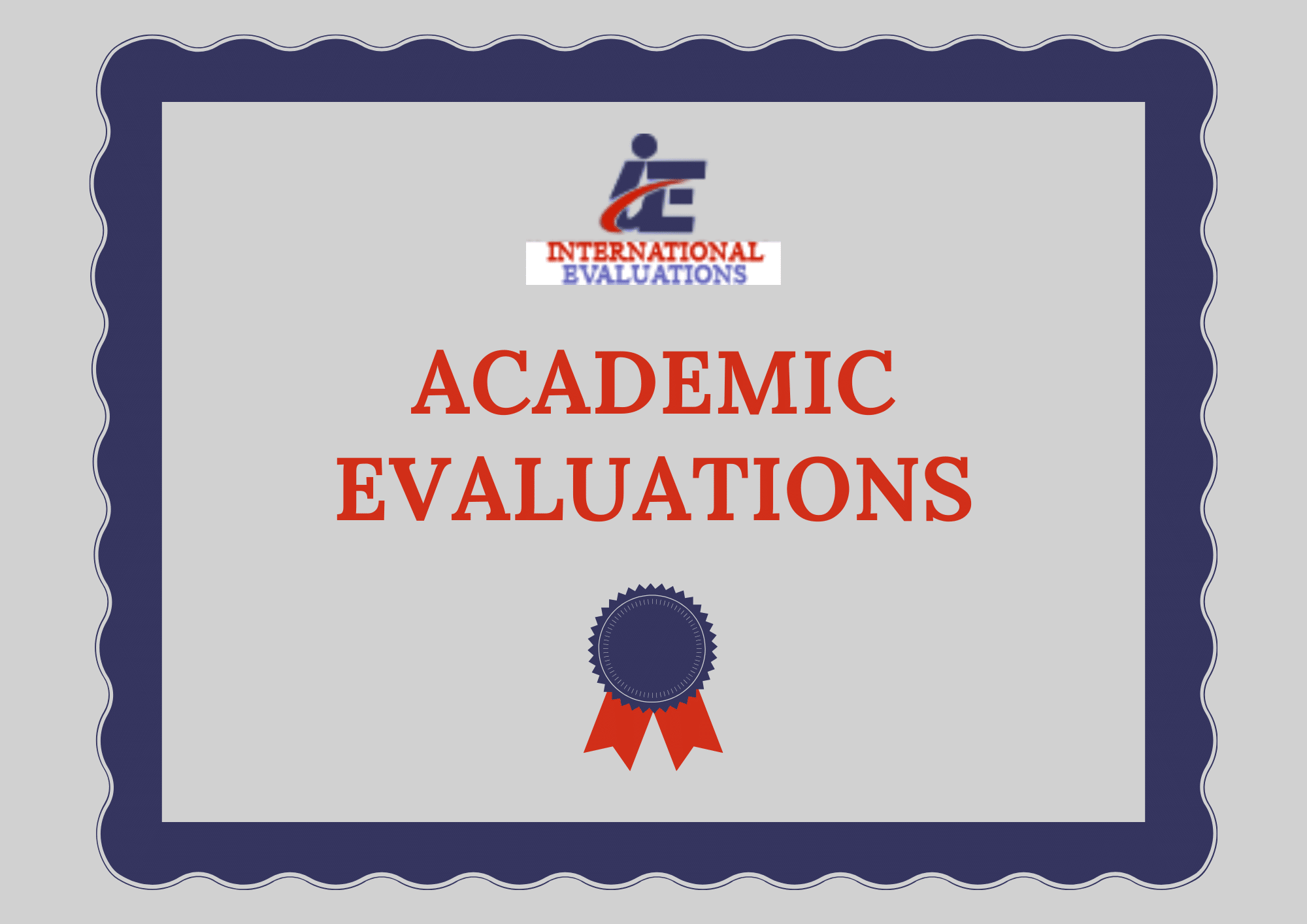Introduction
In a significantly globalized world, the demand for experts who can navigate global borders has actually never ever been greater. As companies broaden their operations across continents, comprehending the nuances of work experience assessment becomes important for both companies and staff members. This article delves deep into the intricacies of work experience evaluation, shedding light on its significance in global mobility, the procedures involved, and how it intersects with academic credential examination and other important factors.
Understanding the Subtleties of Work Experience Evaluation for International Mobility
When we talk about work experience evaluation, we're essentially discussing a structured approach to examine a person's expert background, abilities, and proficiencies in a worldwide context. This examination is essential for numerous stakeholders including companies looking to work with international talent, individuals looking for work abroad, and educational institutions offering programs to improve employability.
Work experience evaluations assist bridge the space between varied international employment standards. They make sure that pertinent experiences are recognized and valued properly. This procedure frequently includes a skilled opinion letter which offers a comprehensive analysis of a prospect's qualifications relative to industry standards.
The Value of Work Experience Evaluation in Global Mobility
Navigating International Standards
With various nations having actually varied criteria for assessing professional experience, understanding these disparities ends up being crucial. An efficient work experience evaluation allows employers to line up candidates' backgrounds with local expectations.
Enhancing Employability
For task hunters aiming for chances abroad, providing an accurate depiction of their work history can considerably boost their employability. Assessments performed by respectable global credential assessment services provide potential employers a clear image of what prospects give the table.
Key Parts of Work Experience Evaluation
1. Document Verification
Document confirmation is basic in developing the credibility of a candidate's work experience. Each file should be inspected thoroughly to avoid scams or misrepresentation.
2. Skill Assessment
An extensive ability evaluation examines the competencies gotten during previous work. This might include technical abilities as well as soft abilities like interaction or management abilities.

3. Specialist Opinion Letter
A professional opinion letter plays a pivotal role in verifying work experiences. It works as a reliable recommendation from acknowledged specialists within specific industries or sectors.
Types of Credential Evaluations Related to Work Experience
1. Academic Credential Evaluation
This process evaluates educational qualifications obtained from institutions outside the nation where one seeks work or more education. Understanding how scholastic qualifications associate with work experiences is vital as some roles need particular instructional backgrounds.
2. Course-by-Course Credential Evaluation
For applicants who wish to show their scholastic standing along with practical experiences, course-by-course evaluations offer comprehensive breakdowns naturally taken, grades got, and equivalencies established in relation to local education systems.

3. Company Strategy Evaluation
While mainly appropriate for entrepreneurs, company plan assessments can link with work experience assessments when individuals look for funding or collaborations based on their previous roles and achievements within particular industries.
The Process of Performing a Work Experience Evaluation
Conducting an extensive evaluation involves a number of actions:
- Collecting necessary documents such as letters from previous companies, pay stubs, or job descriptions. Engaging with international credential evaluation services that focus on assessing foreign work experiences. Compiling findings into thorough reports that outline confirmed abilities and experiences clearly.
Challenges in Work Experience Evaluation
Despite its importance, there are challenges associated with examining work experience internationally:
- Variability in task titles and duties throughout various cultures can make complex comparisons. Inconsistencies in documents practices may result in difficulties in confirming claims made by candidates.
Best Practices for Efficient Work Experience Evaluation
To guarantee precision and fairness in evaluations:
Establish clear standards regarding what constitutes legitimate work experience. Engage certified evaluators who comprehend both regional and international market demands. Utilize technology-driven services for effective information collection and analysis.Future Trends in Work Experience Evaluations
As globalization continues to develop:
- We anticipate increased use of expert system tools to enhance evaluations. More focus will likely be put on soft skills and flexibility along with conventional tough abilities due to altering workforce dynamics.
FAQs
Q1: What is a professional viewpoint letter?
A professional viewpoint letter is a file provided by industry professionals that validates an individual's certifications or experiences according to market standards.
Q2: How does scholastic credential assessment impact work experience?
Academic credential evaluations help contextualize instructional qualifications against local expectations, enhancing understanding throughout work experience assessments.
Q3: Why do I need a course-by-course credential evaluation?
A course-by-course credential examination provides detailed insights into your scholastic history, showing how your https://canvas.instructure.com/eportfolios/3927926/home/expert-point-of-view-letter-foreign-level-and-experience-evaluation education complements your expert experiences.
Q4: Can my previous job title affect my work experience evaluation?
Yes! Job titles vary commonly across areas; for that reason it's important that evaluators consider responsibilities rather than titles alone when assessing qualifications.
Q5: What kinds of documents are needed for work experience evaluations?
Usually required documents consist of letters from past companies detailing your role/responsibilities, pay stubs suggesting period at each position, and any related accreditations earned during employment.
Q6: The length of time does a common work experience evaluation take?
The period can vary extensively based on intricacy but normally varies from several weeks as much as 3 months depending on paperwork availability and verification needs.
Conclusion
Understanding the nuances of work experience examination is necessary for navigating today's worldwide workforce landscape successfully. By valuing the intricacies included-- varying from paperwork confirmation through specialist viewpoint letters-- it ends up being clear that this procedure is not simply bureaucratic but deeply essential to ensuring that talent is recognized properly throughout borders.
As business significantly worth varied perspectives brought by international talent pools, those included-- be it task hunters or companies-- must remain educated about finest practices surrounding these assessments while also adapting as patterns develop within this dynamic field.
By harnessing trusted resources such as scholastic credential evaluations and engaging with trustworthy worldwide credential examination services, people can enhance their profiles significantly while organizations can make informed hiring decisions aligned with their tactical objectives-- eventually fostering development within our interconnected world economy.